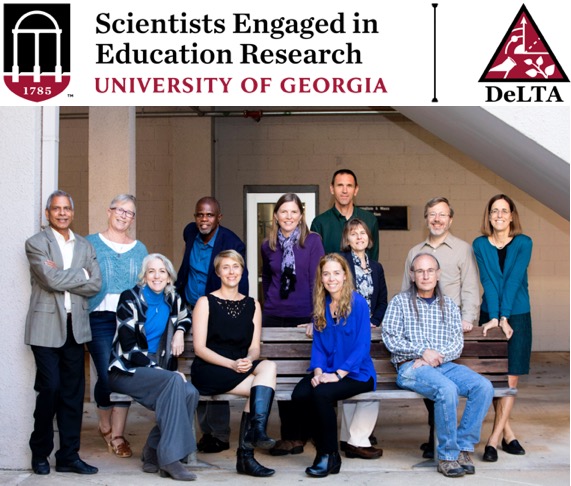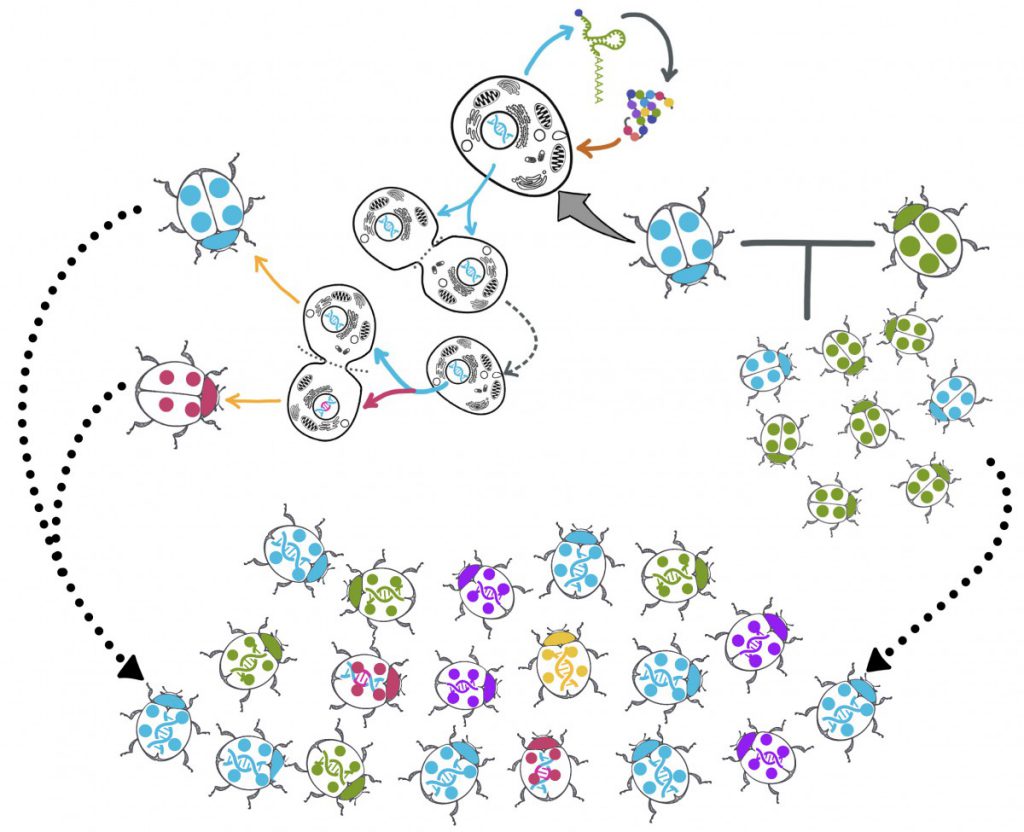My teaching philosophy
The primary objective of higher education is to teach people how to learn. Pretty much everything that any of us learned in our introductory biology courses as an undergraduate has been surpassed by new discoveries. Our students need the skills to adapt and develop along with those changes if they are going to be successful in their careers. I focus on the process by which we understand the natural world, helping students to develop the analytical and critical thinking skills necessary to evaluate new information and assess its quality. My pedagogical practice is informed by the latest educational research and driven by my desire to provide an inclusive classroom where students feel respected and supported. One of my major motivations for changing how we teach science is the recognition that the current model is not inclusive, and we cannot continue to lose talented women and historically excluded groups from science.
I have a long history of engaging with pedagogy, starting with attending some of the first NSF-sponsored workshops on critical thinking in the sciences in the 1990s. I work to stay current around knowledge and understanding of best practice in STEM teaching through attending workshops and developmental opportunities. For example, I was one of the inaugural cohort of UGA CTL Fellows for Innovative Instruction, focused on “flipping the classroom.”

In addition to my own teaching praxis, I mentor other faculty in developing their teaching as a Facilitator of the DeLTA Biology Instructional Action Team. I have been recognized for my dedication to education by being selected as a Fellow by the UK Higher Education Academy and as an Education Fellow in the Life Sciences by the National Academy of Sciences. At UGA I was selected as a Senior Teaching Fellow in 2018. In 2019 I was appointed to the University of Georgia Teaching Academy and was awarded the D.W. Brooks Award for Excellence in Teaching by C.A.E.S.
BIOL 1108 Principles of Introductory Biology II
Introductory biology is a key step in developing student interest and preparing students for further learning. However, introductory biology is often delivered as a survey course, heavy on content but without giving students an opportunity to practice skills or appreciate the nature of scientific knowledge. This focus on content has come despite the agreement that to be scientifically literate, students not only need to understand a few overarching core concepts in biology but also need to understand the process of science, gain competency in communication and collaboration, have a basic ability to understand and interpret data, and have some expertise with a computational approach to exploring biological principles.
I teach a ‘flipped’ class in which lower levels of cognitive work are done outside of class and higher order work, such as analysis and synthesis, takes place in the classroom where the students have the support of the instructor. I developed video lectures to support student learning outside of class, and in-class case studies that draw on current scientific papers. As an example of the type of activity that I developed, my peer-reviewed case study for hormone cascades is available through the National Center for Case Study Teaching in Sciences, along with the accompanying videos, one of which you can see below.
I am looking forward to developing similar resources for the new BIOL 1107 course that I will be teaching starting in the Spring of 2021. I start my planning with a ‘map’ of where I want the students to go in the course. A semester-long activity will be having the students label the arrows on this map!

ENTO 4450/6450 Insect Behavior
For ENTO 4450/6450 Insect Behavior I adapted the C.R.E.A.T.E. method developed by Dr. Sally Hoskens of City College of New York. This method uses the primary literature to teach core concepts. Using a systematic approach focusing on the purpose of each section of a scientific paper, it develops students’ ability to analyze data from papers and consolidate their understanding of scientific concepts within an experimental framework. Thus students develop both core concepts but also core competencies, as outlined by the AAAS Vision & Change Call to Action. In this course students use concept maps to define the background knowledge leading to the particular study described in the paper and the questions arising that lead to the specific hypotheses being tested. For more about the use of concept maps in teaching, please see the UGA CTL Video “Concept Mapping: What is it and why do it?”
I also volunteer to teach a section of GRSC 7770 Graduate Teaching Seminar, designed to develop graduate teaching assistants’ awareness of teaching philosophy and practice as well as professional development opportunities.
Finally, every Fall I teach a section of First Year Odyssey Seminar, usually around a book. I have taught seminars around Artificial Reproductive Technology and the book The Birth of the Pill by Jonathan Eig. One year I taught the book High: Drugs, Desire, and a Nation of Users by Professor Ingrid Walker at the University of Washington Tacoma. With FYO funding I was able to bring Dr. Walker in to speak to the class as a way of introducing them to the concept of their instructors as scholars.